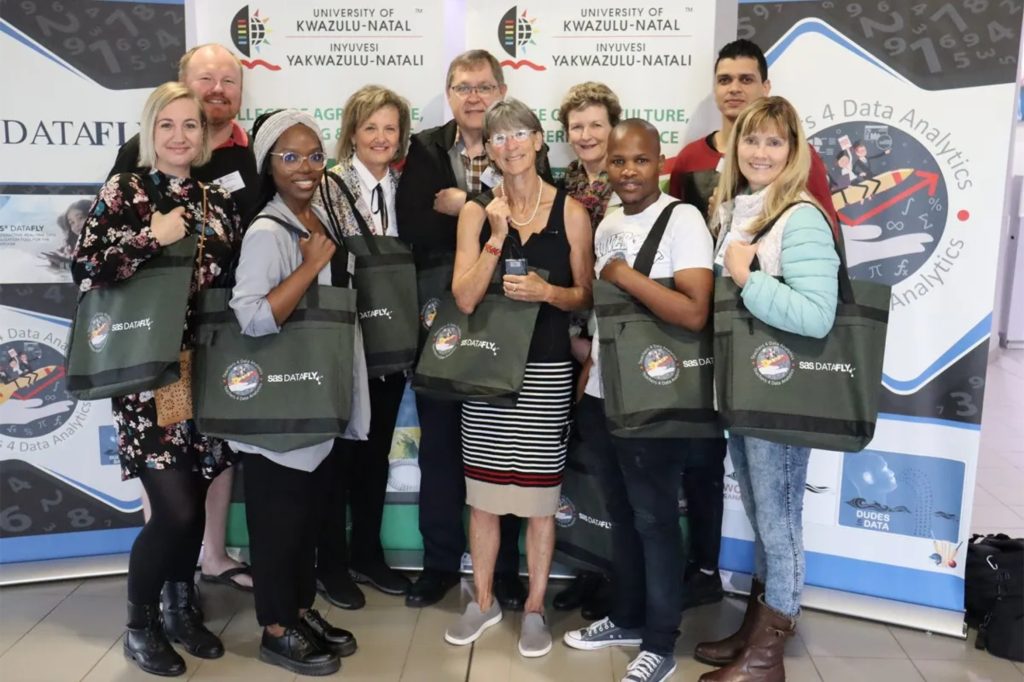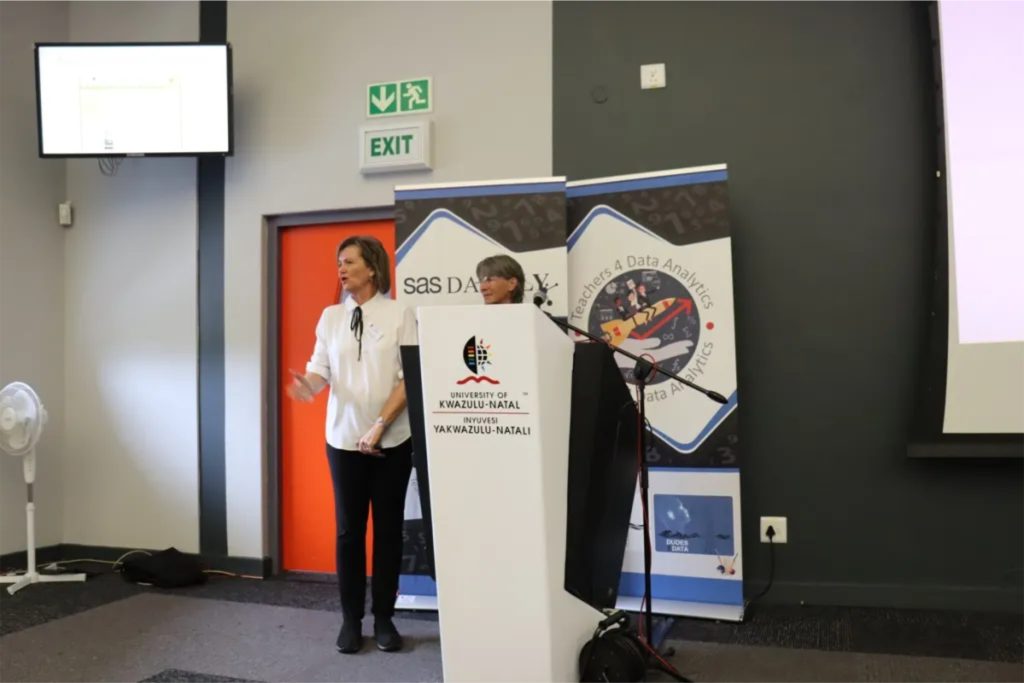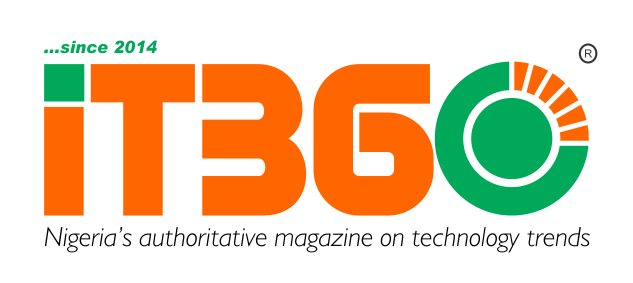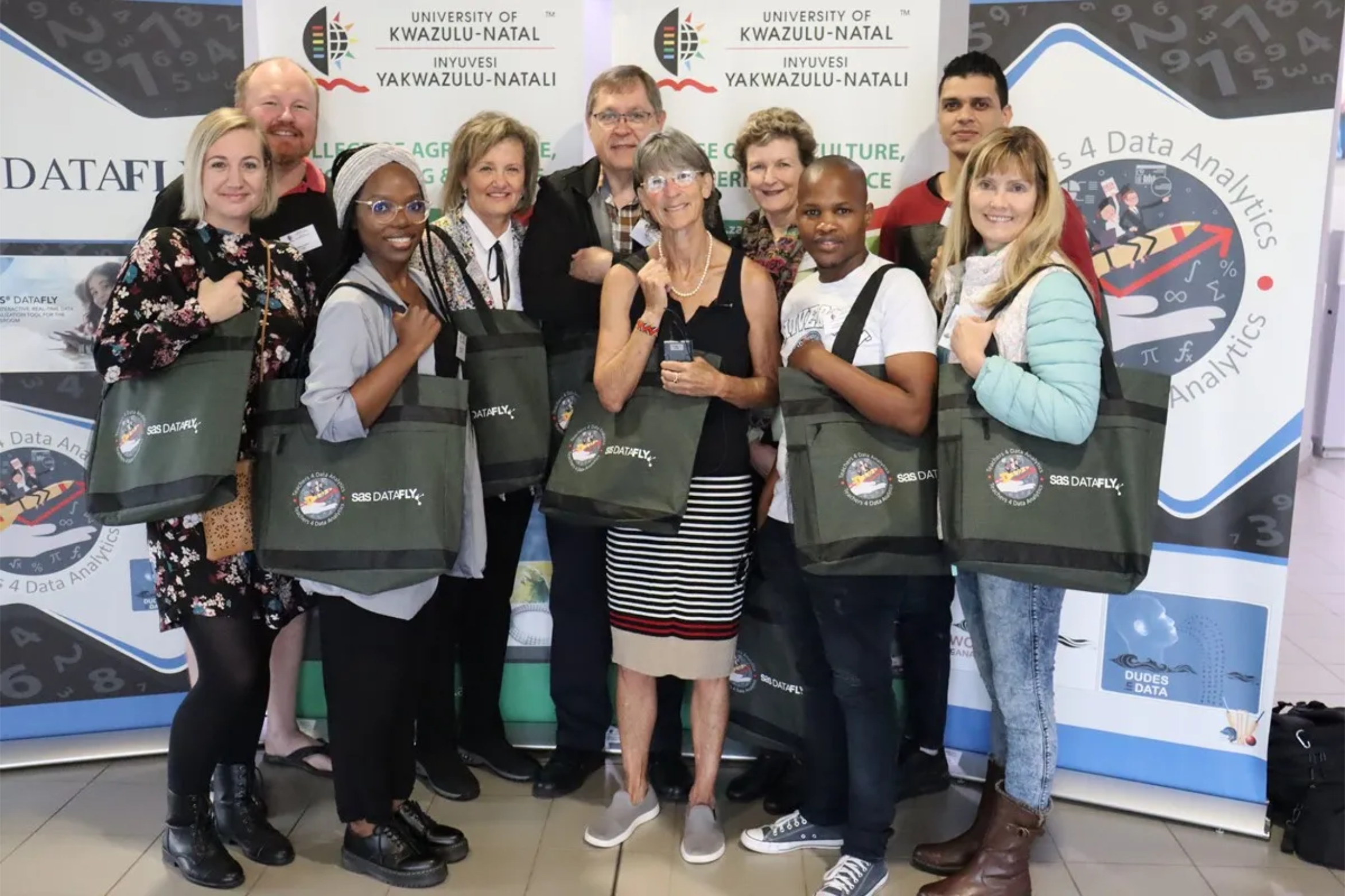Teachers4DataAnalytics program will transform classrooms through data analytics

SAS DataFly is the software of choice in this program, as innovative use of the versatile software will allow the teacher to use SAS DataFly despite constraints and realities of teaching in less affluent schools.
Additionally, the program is defined as a scalable initiative that will be taken to other universities across the country – and later across the continent – to help connect schools, universities, industry and government in creating a talent pipeline for a digital future. The series of teacher training workshops that will be held at universities across the country will culminate in a SAS DataFly poster competition for teachers.
The inaugural teacher workshop was held at UKZN on 13 August 2022, with more than 30 mathematics and science teachers from 26 schools around the province. Speakers on the day included Professor North, Professor Franklin and Miss Nombuso Zondo, a young lecturer in Statistics at UKZN, who profoundly presented the SAS Data Fly workshop.
Following the success of this launch, the team behind the Teachers4DataAnalytics program will take the workshop format on a roadshow to the University of the North-West and the University of the Western Cape in the coming months before the year’s end.
Professor North says school curricula require students to learn how to perform statistical calculations, but the time available to complete the year’s work limits learners’ ability to engage with the context of such calculations or their usefulness beyond school.
“This ‘dry’ method of presenting the curriculum does little to encourage curiosity and passion about statistics, which plays a role in reducing the number of candidates entering technical undergraduate qualifications and, ultimately, the number of university graduates who can fill important roles in a modernising economy. The sustainability of the skills value chain depends on learners being aware of career opportunities before leaving secondary school.”
In particular, she feels that any initiative that exposes learners to the enhancement of career opportunities in line with the needs of the modern workplace should be pursued with great focus. “Teachers are ‘change agents’ and can have a fundamental influence in this regard,” says Professor North.
According to Zitzke, SAS’s historical roots in academia are part of the reason the company is so involved in connecting talent with industry. “It’s not enough to get involved at universities because we need to generate passion for STEM careers among learners so that they can make informed choices about what they want to study at tertiary level. We need teachers onboard to do this, because the passion will be created in the classroom,” he says.
The Teachers4DataAnalytics program invites high school teachers to not only attend the workshop in which they will build further instructional capacity, but to participate in a competition where they will use SAS’s DataFly technology to bring statistics to life in a data exploration.

“We have considered the South African context in which many school learners will not have access to computer laboratories or mobile devices. The free SAS DataFly visualisation tool can be run on the teacher’s single laptop and learners can record data written by hand on cards that can then be fed into the tool to build graphs and analytics in real time. When learners watch the data fly in and populate histograms or scatterplots, that is where the magic happens,” says North.
“These projects will require learners to capture data from their everyday lives, such as their activities or emotional states through the course of a day, to connect data analysis with the real world. Seeing it in action, with the capability to add fun features like colour and emoji customisations, heightens engagement with calculations and demonstrates their usefulness in understanding the world around us. Each class will then create a poster showing how they’ve analysed the data,” North adds.
“It is our genuine hope that exposure through such projects will captivate the curiosity of learners on the process and purpose of capturing data for analysis, while introducing the skills that learners will need once they reach the time for a professional career of their choice, whether that is business, academic or any other field,” says Zitzke.
The coordinated Teacher Empowerment Workshops will leverage thought leaders from the South African Statistical Association Education Committee and the American Statistical Association to provide enriching learning material on SAS DataFly as the foundation technology, as well as additional material intended to stimulate discovery in the classroom.
The Teachers4DataAnalytics program also aligns well with other SAS sponsored talent connection programs such as the annual Women in Analytics and Dudes in Data events, which aim to connect top school talent with SAS flagship universities. There are also a series of Grade 11 learner recruitment events that will serve as data exploration exercises at UKZN and UWC.


